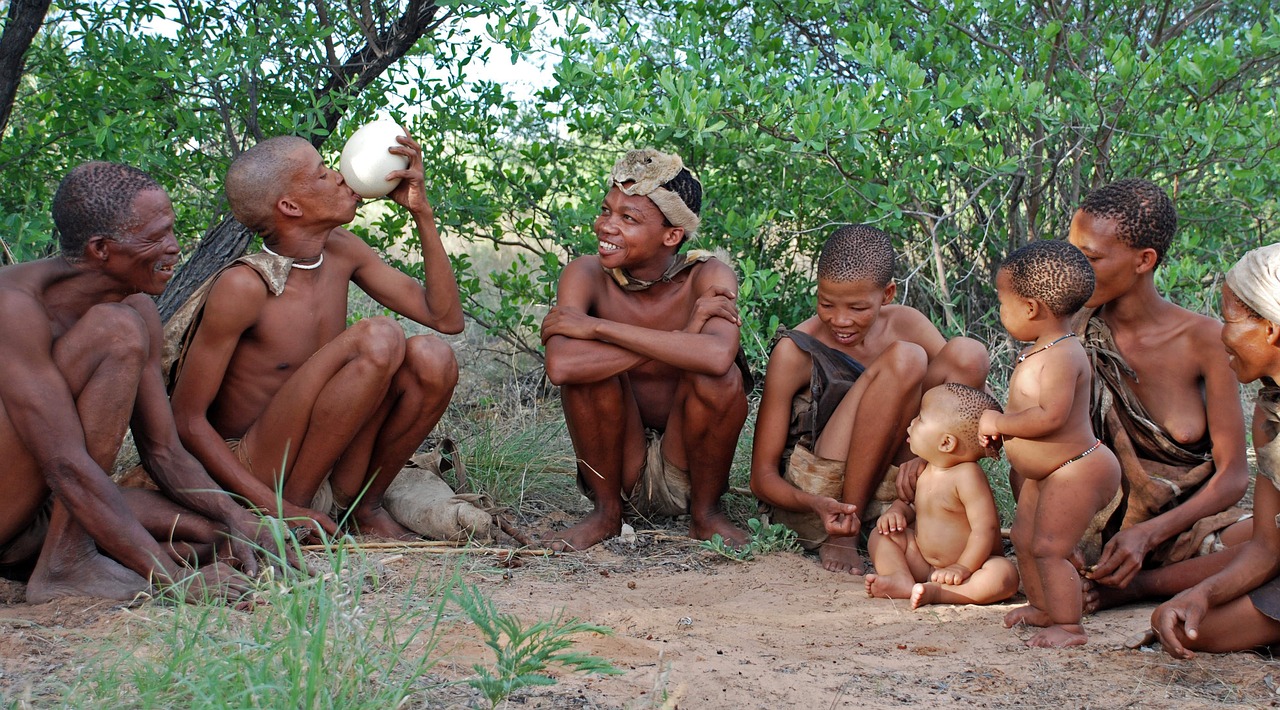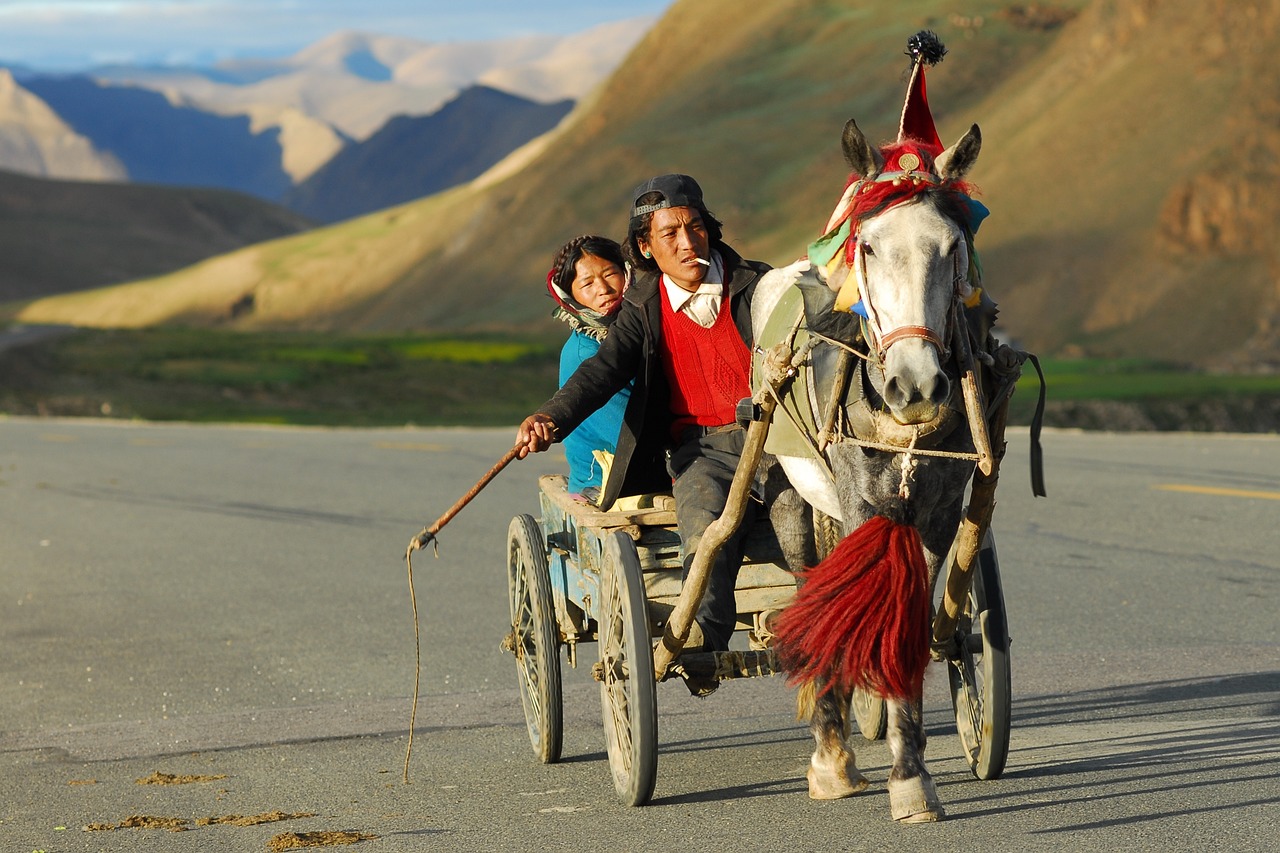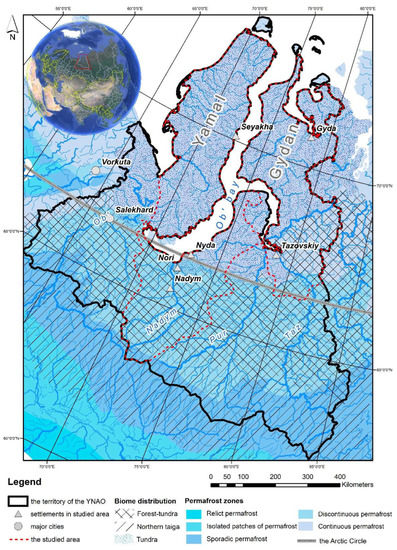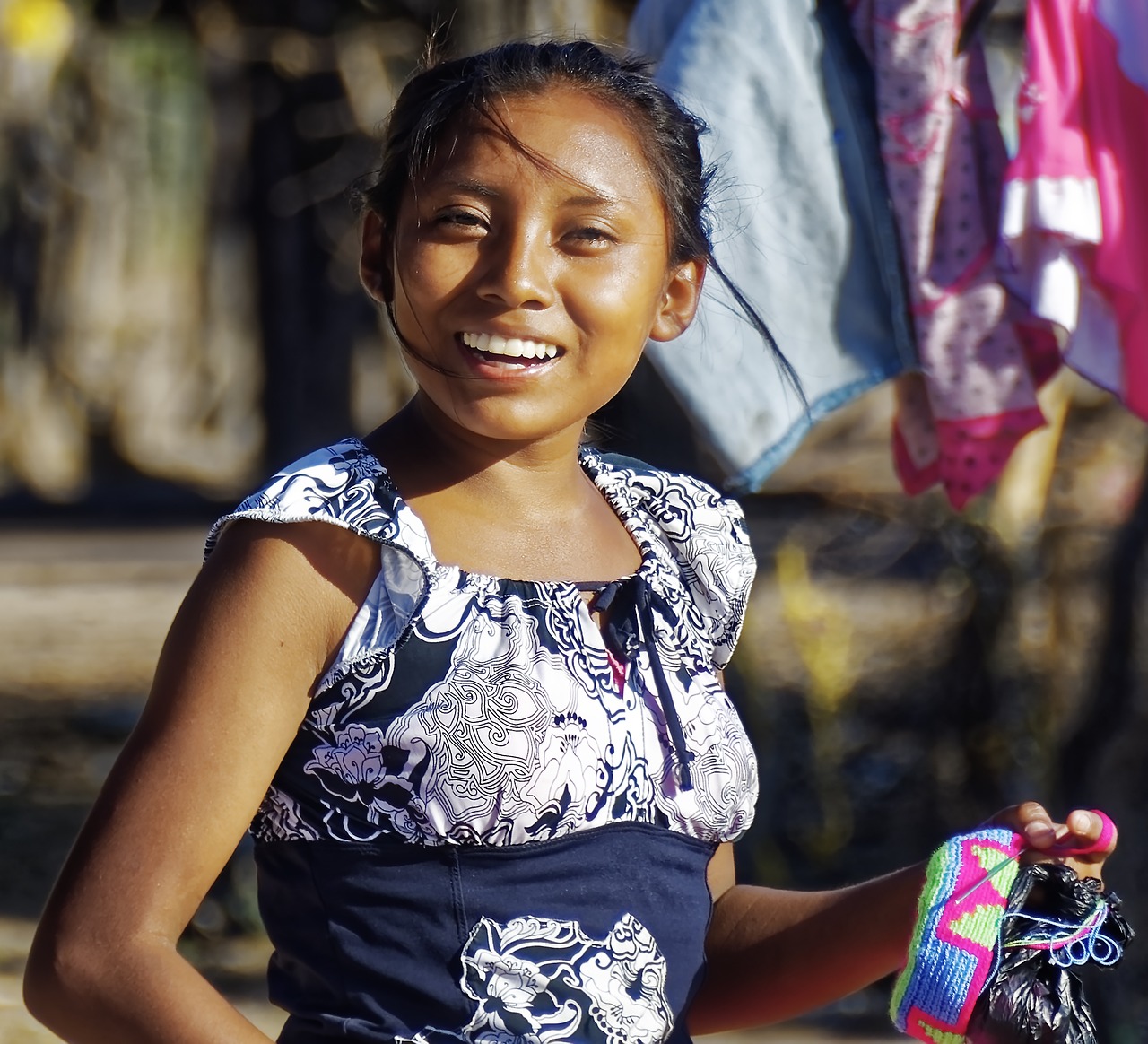Table of Contents
Siberia, a vast and unforgiving expanse in the northern reaches of Russia, is home to a diverse tapestry of indigenous cultures. Among them, the Chukchi and Evenki peoples stand as remarkable examples of resilience, adaptability, and a profound connection to the extreme northern environment. In this article, we delve into the unique heritage, traditions, and contemporary challenges faced by the Chukchi and Evenki, shedding light on their extraordinary way of life in one of the world’s harshest climates.
Siberia, a vast and unforgiving expanse in the northern reaches of Russia, serves as a testament to the human spirit’s resilience and adaptability. This sprawling territory encompasses a remarkable tapestry of indigenous cultures, among which the Chukchi and Evenki peoples shine as exemplars of these qualities. Their deep connection to the extreme northern environment and their rich heritage offer insights into not only the challenges they face but also the extraordinary way of life they have crafted in one of the world’s harshest climates.
Heritage and Ancestry: The Chukchi and Evenki peoples boast rich ancestral lineages that stretch back through millennia. Their traditions, oral histories, and cultural practices provide a window into the past, offering profound insights into how they have navigated the Arctic wilderness for generations.
Traditional Nomadic Lifestyles: Both the Chukchi and Evenki have traditionally practiced nomadism, moving with the seasons to find sustenance for their communities. This way of life is intricately tied to the rhythms of nature, as they follow reindeer herds, hunt, and gather in a finely tuned dance with the environment.
Extreme Environment: The Siberian Arctic, characterized by brutal winters and vast tundra landscapes, poses extraordinary challenges. The Chukchi and Evenki have developed an intimate understanding of this environment, harnessing its resources and adapting their lifestyles to its demands. Their traditional clothing, for instance, is designed to withstand frigid temperatures, and their dwellings are ingeniously constructed to protect against the elements.
Spirituality and Animism: Spirituality plays a central role in the lives of the Chukchi and Evenki. Animism, the belief that spirits inhabit natural elements and creatures, shapes their worldview. This profound connection with the spiritual world informs their rituals, storytelling, and the way they interact with their environment.
Contemporary Challenges: In the face of modernity, the Chukchi and Evenki confront a range of challenges. Climate change is disrupting traditional hunting and herding patterns, posing a threat to their food security. Additionally, globalization and urbanization have led to the erosion of traditional practices, languages, and cultural identities.
Adaptation and Resilience: Despite these challenges, the Chukchi and Evenki peoples exhibit remarkable adaptability and resilience. They are actively engaged in finding innovative solutions to preserve their cultural heritage while also addressing contemporary issues. Initiatives promoting indigenous languages, cultural festivals, and collaborations with researchers and environmentalists demonstrate their determination to thrive in a changing world.
Global Relevance: The story of the Chukchi and Evenki has global relevance. Their ability to maintain a sustainable existence in the Arctic resonates with discussions on climate change, indigenous rights, and biodiversity preservation. Their knowledge of the land, passed down through generations, offers valuable insights into how humanity can adapt and coexist with our planet’s most extreme environments.
In conclusion, the Chukchi and Evenki peoples of Siberia stand as living testaments to human resilience, adaptability, and the enduring connection between culture and environment. Their unique heritage, traditions, and contemporary challenges serve as a powerful reminder of the importance of preserving and learning from indigenous wisdom in an ever-changing world.
For additional details, consider exploring the related content available here Arctic – Eurasian, Subarctic, Peoples | Britannica
The Chukchi People
The Chukchi people, inhabiting the Chukotka Peninsula along the northeastern coast of Siberia, have lived in this remote and challenging environment for centuries. Their survival has hinged on their ability to adapt to the harsh Arctic conditions and the resourcefulness of their nomadic lifestyle. The Chukchi are known for their reindeer herding, hunting, and fishing, which provide them with essential sustenance.
nullTo expand your knowledge on this subject, make sure to read on at this location: Health and society in Chukotka: an overview – PMC

The Evenki People
Further inland, in the vast Siberian taiga, reside the Evenki people. These indigenous nomads have roamed the boreal forests and tundra for centuries, relying on reindeer herding, hunting, and fishing to sustain their communities. The Evenki’s unique knowledge of their environment and the reindeer’s migratory patterns has been passed down through generations.
Further inland, deep within the vast expanse of the Siberian taiga, you’ll find the resilient and resourceful Evenki people. These indigenous nomads have been the custodians of the boreal forests and sprawling tundra for centuries, forging a profound connection with the land and its bountiful resources. In their remote and pristine corner of the world, the Evenki have honed their traditional way of life, relying on reindeer herding, hunting, and fishing to sustain their communities.
Central to the Evenki way of life is their remarkable expertise in reindeer herding. These hardy animals are not just a source of sustenance but also the lifeblood of their culture. The Evenki’s unique knowledge of the environment, including the complex migratory patterns of reindeer, is a testament to their deep connection with the natural world. This knowledge has been meticulously passed down through generations, encompassing the wisdom of tracking reindeer herds over vast distances, predicting the movements of these animals with uncanny precision, and ensuring their well-being in the harshest of Siberian winters.
In the heart of the Siberian wilderness, the Evenki people have mastered the art of subsistence hunting and fishing. Their skill in tracking and capturing elusive game, such as moose, bears, and various species of fish, is a testament to their intimate understanding of the taiga’s ecosystems. Each hunting and fishing expedition is a lesson in patience, adaptability, and respect for the natural world. These traditions ensure that the Evenki not only survive but thrive in one of the planet’s most demanding environments.
The Evenki’s nomadic lifestyle has fostered a deep sense of self-reliance and adaptability. Their mobile homes, known as “chums” or “yurts,” are designed for easy assembly and disassembly, allowing them to follow the reindeer herds and make the most of the changing seasons. This constant movement, harmonized with the rhythms of nature, reflects the Evenki’s profound respect for their environment and their role as stewards of the Siberian taiga.
Today, the Evenki people face new challenges, including the encroachment of modernization and the effects of climate change on their traditional way of life. Yet, their enduring connection with the land, their expertise in reindeer herding, and their age-old traditions remain a source of inspiration and resilience. The Evenki offer the world a timeless example of how a deep understanding of one’s environment and a profound respect for nature can sustain not only individuals but entire communities in the harshest of conditions.
For additional details, consider exploring the related content available here The Origin of Amerindians and the Peopling of the Americas …

Preservation of Heritage
Despite the formidable challenges, both the Chukchi and Evenki people are committed to preserving their cultural heritage and traditional knowledge. Efforts are underway to document their languages, folklore, and oral traditions. Cultural centers and community initiatives aim to ensure the transmission of these rich legacies to younger generations.
In the face of formidable challenges, the Chukchi and Evenki people have not only demonstrated their commitment to preserving their cultural heritage but have also taken proactive steps to ensure its continuity and relevance in the modern world.
Language Preservation: Both the Chukchi and Evenki communities recognize that language is the heart and soul of their cultures. Efforts to document and revitalize their languages are underway. Linguists and community elders work collaboratively to record traditional words, phrases, and grammatical structures. Language immersion programs are also being developed to teach the younger generation their native tongues, ensuring that these languages remain vibrant and spoken.
Folklore and Oral Traditions: The stories, myths, and legends of the Chukchi and Evenki are not just tales; they are repositories of ancestral wisdom and cultural values. To safeguard these narratives, storytellers and elders are diligently passing them down to the younger generation. In addition, efforts are made to record and transcribe these oral traditions so that they can be preserved for posterity. The storytelling tradition remains a vibrant and cherished aspect of their cultures.
Cultural Centers: Cultural centers have become vital hubs for the preservation and promotion of indigenous cultures. These centers serve as repositories of knowledge, housing artifacts, tools, and artworks that offer insights into the history and traditions of the Chukchi and Evenki peoples. They also host exhibitions, workshops, and educational programs that engage both the local community and visitors from around the world, fostering cross-cultural understanding and appreciation.
Community Initiatives: Grassroots initiatives within Chukchi and Evenki communities are at the forefront of cultural preservation. Elders play a pivotal role in mentoring younger members, imparting essential skills such as traditional hunting techniques, sewing, and crafting. The passing down of these practical skills is complemented by a deeper understanding of cultural values and respect for the land.
Inter-generational Knowledge Transfer: Recognizing the importance of inter-generational knowledge transfer, community members, young and old, participate in cultural exchange activities. This often involves organized gatherings where traditional practices are demonstrated and celebrated. These events reinforce the bonds between generations and ensure that the wisdom of the elders continues to guide the community’s way of life.
In conclusion, the Chukchi and Evenki people’s commitment to preserving their cultural heritage and traditional knowledge is not merely an act of remembrance but a dynamic and evolving process. Their efforts to document, transmit, and adapt their cultural legacies ensure that these ancient traditions remain relevant and resilient in the face of modern challenges. By nurturing their unique heritage, the Chukchi and Evenki peoples continue to be the torchbearers of their cultures, inspiring not only their own communities but also the world at large.
To expand your knowledge on this subject, make sure to read on at this location: INDIGENOUS PEOPLES IN THE RUSSIAN FEDERATION

Community Resilience
One of the most inspiring aspects of both cultures is their sense of community. In the face of modern pressures and the changing climate, the Chukchi and Evenki people continue to support one another, reinforcing their resilience.
The profound sense of community deeply rooted in the Chukchi and Evenki cultures is a source of inspiration that transcends time and challenges. Amid the modern pressures and the undeniable shifts in climate that affect their Arctic homelands, these remarkable indigenous communities steadfastly stand together, reaffirming their remarkable resilience and adaptability.
In the Chukchi and Evenki societies, the concept of community extends far beyond mere geographical proximity. It embodies shared values, traditions, and a profound interdependence among individuals and families. This spirit of togetherness is not only a reflection of their rich cultural heritage but also a wellspring of strength as they navigate a world undergoing rapid transformation.
One of the most admirable aspects of this communal bond is the way it serves as a bulwark against the challenges they face, including the consequences of climate change. The Arctic region, where both the Chukchi and Evenki reside, is experiencing some of the most dramatic shifts in climate, with melting ice, rising temperatures, and unpredictable weather patterns. Yet, within the embrace of their communities, these indigenous peoples have found a reservoir of resilience that empowers them to adapt to these evolving circumstances.
Through shared knowledge and experience, the Chukchi and Evenki not only survive but thrive in their unforgiving environment. They have developed time-tested strategies for subsistence hunting, reindeer herding, and sustainable resource management. This intricate web of skills and practices is not just about survival; it’s a profound expression of their deep connection to the land and its resources.
Furthermore, the Chukchi and Evenki’s unwavering support for one another ensures that no individual or family is left behind in times of adversity. Their communal ethos fosters a culture of sharing, where food, resources, and knowledge are readily distributed among the community members. This ensures that everyone has the opportunity to thrive, reinforcing the collective strength of their societies.
In a rapidly globalizing world, where individualism often takes precedence, the Chukchi and Evenki communities offer a poignant reminder of the enduring power of unity and shared purpose. They demonstrate that a strong sense of community not only enhances resilience in the face of external challenges but also enriches the human experience. Their story teaches us the importance of embracing interconnectedness and mutual support, values that are increasingly vital in addressing the global issues of our time.
In conclusion, the profound sense of community in both Chukchi and Evenki cultures serves as a beacon of strength, enabling them to confront modern pressures and climate change with unwavering resilience. Their example calls upon all of us to recognize the importance of community bonds in navigating a changing world and to embrace the spirit of cooperation, interdependence, and shared responsibility in our own lives and societies.
Explore this link for a more extensive examination of the topic: REINDEER HERDING, TRADITIONAL KNOWLEDGE AND …

The Chukchi and Evenki peoples of Siberia’s Extreme North embody the indomitable spirit of indigenous cultures in the face of adversity. Their ability to thrive in some of the harshest environments on Earth is a testament to their resourcefulness and profound connection to nature. As the world grapples with environmental challenges and the preservation of indigenous cultures, the stories of the Chukchi and Evenki serve as reminders of the importance of respecting and preserving these unique ways of life. Their legacy is not just a window into the past but also a beacon of hope for the future.
nullIf you’d like to dive deeper into this subject, there’s more to discover on this page: Parallel Information: Discrimination against indigenous small …
More links
Explore this link for a more extensive examination of the topic: International UNESCO Chair MK Ammosov North-Eastern Federal …
